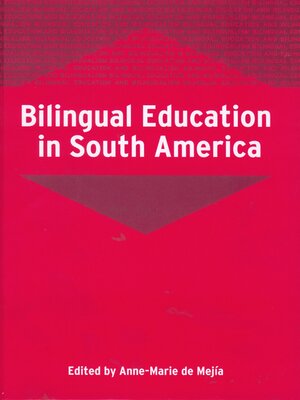Bilingual Education in South America
ebook ∣ Bilingual Education & Bilingualism
By Anne-Marie de Mejía

Sign up to save your library
With an OverDrive account, you can save your favorite libraries for at-a-glance information about availability. Find out more about OverDrive accounts.
Find this title in Libby, the library reading app by OverDrive.



Search for a digital library with this title
Title found at these libraries:
| Library Name | Distance |
|---|---|
| Loading... |
The development of bilingual education in South America can be traced back to the arrival of the Spanish and Portuguese colonisers in the 15th and 16th centuries, when Catholic missionaries began their evangelisation of the indigenous peoples using local vernaculars, as well as Latin, Spanish and Portuguese. Traditionally, debate on bilingual education has been conducted in two separate arenas: majority language contexts involving international languages, such as English, French, Spanish and Portuguese, and minority community contexts aimed at maintaining native Amerindian languages as well as the different Sign Languages of the South American Deaf communities.
This book presents an integrated vision of bilingual education in six South American nations: three Andean countries, Peru, Ecuador, and Colombia, and three 'Southern Cone' countries, Brazil, Argentina and Paraguay. It includes work carried out in minority as well as majority language contexts, referring to developments in the fields of indigenous, Deaf, and international bilingual and multilingual provision.







